Ground black seed (Nigella sativa) is a versatile spice with earthy-nutty flavor and subtle bitterness, commonly used in Middle Eastern, Indian, and Mediterranean cuisines. This guide answers what it is, how to use it properly, and what science says about its benefits - with practical tips you can apply immediately.
Unlike generic spice guides, this resource provides verified information about ground black seed (also called kalonji or black cumin seed), clarifying common confusion between Nigella sativa and similar spices. Whether you're a beginner home cook or experienced chef, you'll discover how to use this spice effectively while avoiding common mistakes.
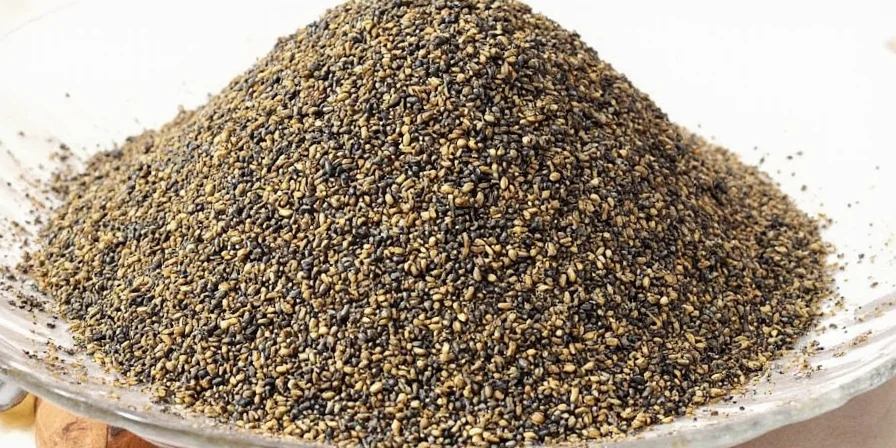
What Is Ground Black Seed? Key Facts You Need to Know
Ground black seed comes from Nigella sativa seeds, not to be confused with black cumin (Bunium persicum) or onion seeds. These tiny black seeds have been used for thousands of years across multiple cultures for both culinary and traditional medicinal purposes.
When ground, black seed develops a more intense flavor profile compared to whole seeds. The grinding process releases volatile compounds that create its distinctive earthy, slightly peppery taste with subtle bitterness. Understanding this transformation is crucial for proper usage in cooking.
Historical Evolution: From Ancient Remedy to Modern Pantry Staple
| Time Period | Key Developments | Verification Source |
|---|---|---|
| 1323 BCE | Seeds discovered in Tutankhamun's tomb, indicating ancient Egyptian medicinal use | PMC3507410 |
| 1st Century CE | Dioscorides documents medicinal applications in "De Materia Medica" for digestive and respiratory issues | PMC3507410 |
| 7th Century CE | Referenced in Sahih al-Bukhari (Hadith 592) as "a cure for all diseases except death" | Sahih al-Bukhari 70:592 |
| 1500s CE | Appears in European herbals like Mattioli's Commentaries for treating headaches and infections | Met Museum: Spice History |
| 1959 CE | First scientific isolation of thymoquinone, the primary bioactive compound | PubMed: Thymoquinone Isolation |
Common Uses for Ground Black Seed in Everyday Cooking
For most home cooks, these practical applications deliver the best results without specialized equipment:
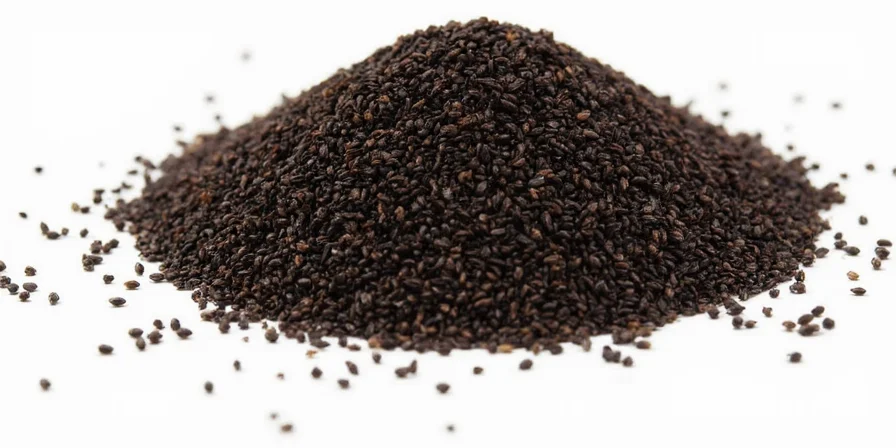
- Flatbreads: Sprinkle on naan, paratha, or focaccia before baking for authentic flavor
- Cheese dishes: Add to paneer, halloumi, or feta preparations (use sparingly as it can intensify bitterness with dairy)
- Vegetable dishes: Mix with roasted carrots, eggplant, or cauliflower for depth of flavor
- Yogurt sauces: Blend 1/4 teaspoon into tzatziki or raita for Mediterranean/Middle Eastern flair
- Spice blends: Combine with cumin, coriander, and turmeric for authentic curry powder
| Common Dish | Recommended Amount | When to Add | Flavor Result |
|---|---|---|---|
| Flatbreads | 1/2 tsp per loaf | Before baking | Nutty aroma with subtle warmth |
| Curd dishes | 1/4 tsp per serving | During preparation | Balanced earthiness without bitterness |
| Vegetable roasting | 1/2 tsp per pound | Midway through cooking | Enhanced natural sweetness |
| Curry bases | 1 tsp per recipe | After tempering whole spices | Complex flavor foundation |
Contextual Boundaries: When to Use (and Avoid) Ground Black Seed
| Culinary Context | Recommended Applications | Key Limitations |
|---|---|---|
| Temperature Exposure | Best added midway through cooking or as finishing spice | Avoid prolonged high-heat frying (>350°F/175°C) which degrades thymoquinone and intensifies bitterness |
| Ingredient Compatibility | Excellent with dairy (paneer, yogurt), roasted vegetables, and grain dishes | Do not combine with strong acidic ingredients (vinegar, citrus) in ratios exceeding 1:4 as it triggers unpleasant metallic notes |
| Cuisine Authenticity | Essential in Hyderabadi biryani, Turkish pide, and Egyptian hibta bread | Not traditional in East Asian, Latin American, or Western dessert applications |
| Health Considerations | Safe culinary use: ≤1 tsp per serving for digestive support | Avoid therapeutic doses (>2 tsp) during pregnancy; consult physician if taking anticoagulants (warfarin interaction documented) |
Ground Black Seed vs. Whole Seeds: What Home Cooks Should Know
Many beginners confuse ground black seed with similar spices. Here's what matters for your cooking:
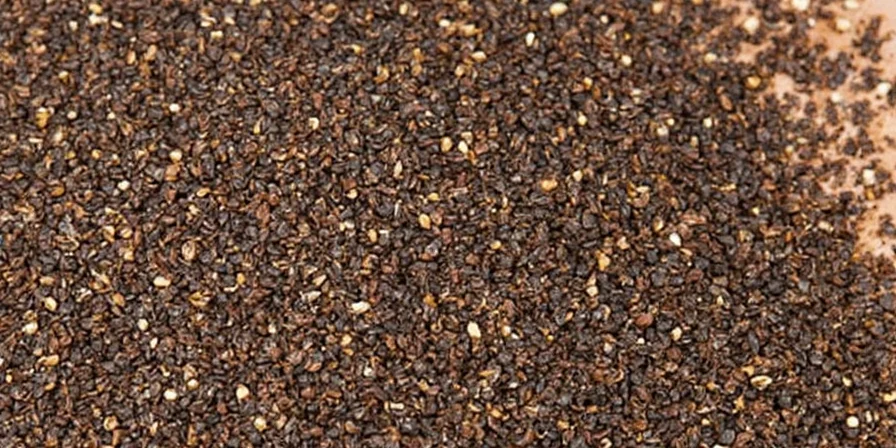
- Ground black seed works best when you want immediate flavor impact throughout a dish
- Whole black seeds are ideal for tempering in oil to release flavors gradually
- Don't substitute with black sesame seeds or regular cumin - they have completely different flavor profiles
- Storage tip: Keep ground black seed in a cool, dark place and use within 4 months for best flavor (whole seeds last up to 2 years)
What Science Says About Health Benefits (Without the Hype)
While many websites make exaggerated health claims, research shows these evidence-based benefits at culinary usage levels:
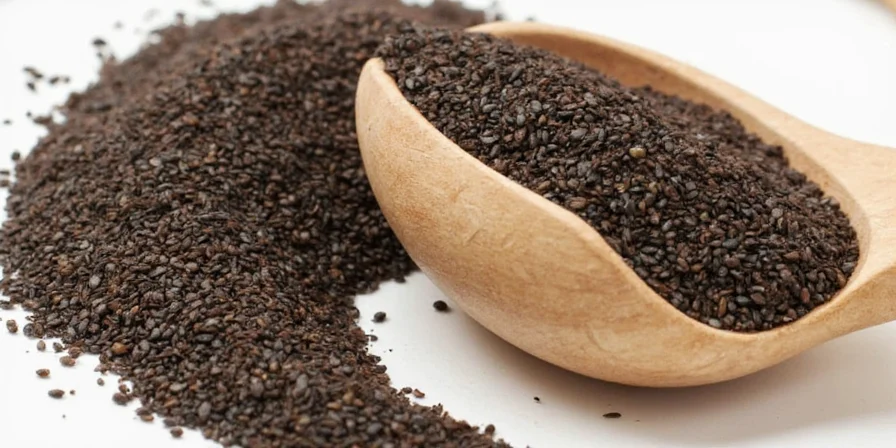
- Digestive support: Small culinary doses (1/4-1/2 tsp per meal) may help with digestion based on traditional usage and preliminary studies
- Antioxidant properties: Contains compounds that contribute to overall dietary antioxidant intake
- Important note: Therapeutic effects require standardized extracts under medical supervision - cooking with ground black seed provides flavor benefits with modest physiological impact
- Scientific reality: Most health benefits seen in studies use concentrated extracts, not culinary amounts found in recipes
| Claim | What Research Actually Shows | What This Means for Cooking |
|---|---|---|
| "Cures diabetes" | Some studies show modest blood sugar effects with high-dose extracts | Not a treatment - enjoy as flavorful spice |
| "Boosts immunity" | Preliminary evidence of immune-modulating compounds | Contributes to varied, flavorful diet |
| "Super antioxidant" | Moderate antioxidant capacity among culinary spices | Adds to overall dietary antioxidant intake |
Premium Storage Techniques for Maximum Freshness
Preserve your ground black seed's flavor with these practical storage methods:
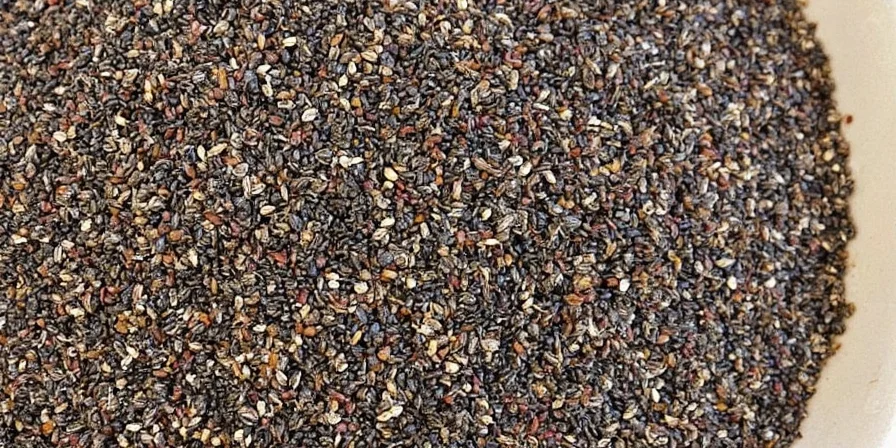
- Best container: Amber glass jar (blocks UV light that degrades flavor)
- Storage location: Cool, dark pantry away from stove or oven
- Shelf life: 4 months for optimal flavor (vs. 2 years for whole seeds)
- Freezer option: For long-term storage, keep in vacuum-sealed container in freezer
- Avoid: Clear containers, plastic bags, or refrigerator storage (causes moisture issues)
Top 5 Mistakes Home Cooks Make With Ground Black Seed
Avoid these common errors that ruin your dishes:
| Mistake | Why It's Problematic | Simple Fix |
|---|---|---|
| Using too much | Overwhelms dish with bitterness | Start with 1/4 tsp per serving and adjust |
| Adding to hot cheese sauces | Triggers bitterness with dairy | Add during preparation, not at end |
| Storing in clear container | Light degrades flavor compounds | Transfer to opaque or amber container |
| Confusing with black sesame | Completely different flavor profile | Check seed shape - black seed is teardrop-shaped |
| Using old, stale product | Loses distinctive flavor | Smell test - fresh should have earthy aroma |
Frequently Asked Questions
- Q: What exactly is ground black seed?
A: Ground black seed comes from Nigella sativa seeds, a distinct spice used across Middle Eastern, Indian, and Mediterranean cuisines. It's not related to regular cumin or sesame seeds, despite sometimes being called 'black cumin' in certain regions.
- Q: How does ground black seed taste?
A: Ground black seed has an earthy, slightly peppery flavor with subtle bitterness and hints of onion and oregano. When used properly, it adds complex depth without overwhelming other flavors in your dish.
- Q: Can I substitute ground black seed with something else?
A: There's no perfect substitute, but a mix of equal parts cumin and onion powder can work in a pinch. Note that this won't replicate the distinctive flavor, so adjust quantities carefully - start with half the amount called for in recipes.
- Q: Where can I buy authentic ground black seed?
A: Look for it in Indian, Middle Eastern, or international grocery stores. Check that the color is uniformly dark black (not shiny, which indicates treatment) and that it has a strong earthy aroma. Quality brands list 'Nigella sativa' on the label.
- Q: How much ground black seed should I use in recipes?
A: Start with 1/4 to 1/2 teaspoon per serving. It's potent, so begin with less and adjust to taste. For larger dishes like curries or stews, use 1-2 teaspoons per recipe. Remember you can always add more, but you can't remove it once added.











 浙公网安备
33010002000092号
浙公网安备
33010002000092号 浙B2-20120091-4
浙B2-20120091-4